How to Work on Decision Making Skills Using HappyNeuron Pro
Making better choices and improving decision-making abilities is a common goal of clients who are undergoing cognitive remediation therapy. Working on decision-making skills will help your client adhere to a budget, learn how to effectively prioritize tasks they need to accomplish and make better choices in regards to communicating with others during social engagements. HAPPYneuron Pro offers a multitude of activities that you can use with your clients to practice decision-making skills. Here are five of the top activities we suggest that you use to work with your client on their decision-making skills.
Our Top Recommended Exercises for Decision-Making:
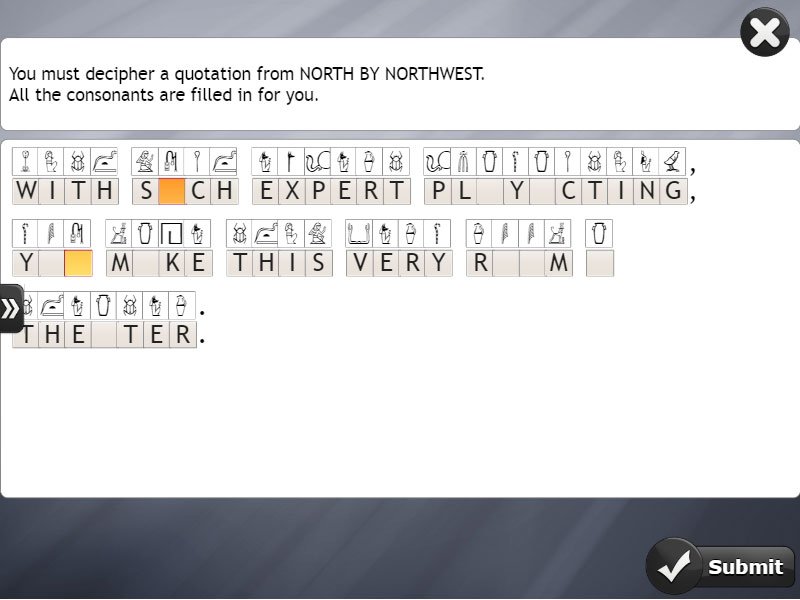
1) Decipher
In this exercise, your client will be tasked to crack a code that reveals a famous quotation. Help can be provided by giving the client consonants, vowels, a few letters, or a word within the quotation. To effectively solve the problem, your client must draw upon information that is provided, use deductive reasoning based on the information, make predictions, and regroup if their attempt wasn’t successful. These skills relate to decision making in that it will help your client learn to reflect and think about a problem at hand, what information they have to solve it, what that information may tell them about the future, and help them use given and predicted information to make a choice of action.
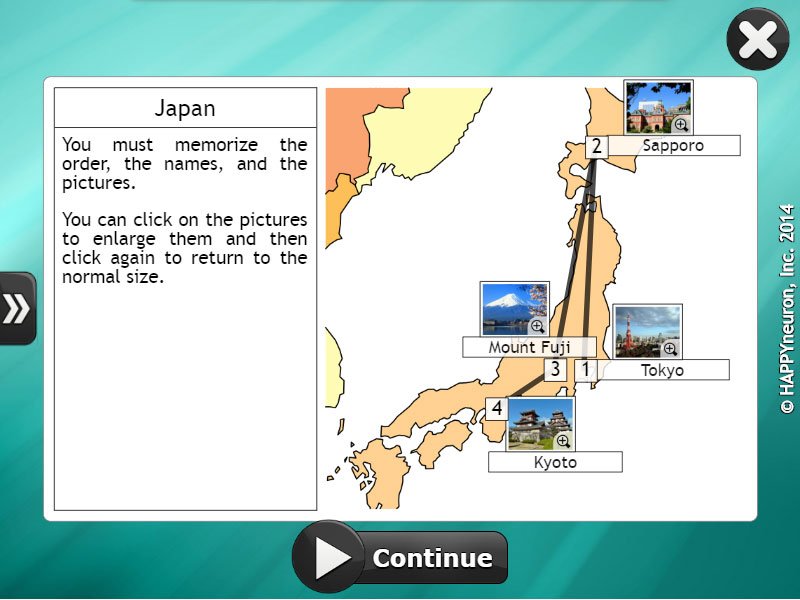
2) Around the World in 80 Trips
While addressing verbal and visual memory, your client must select a number of tours in ideal destinations that they would like to take. They must then recall what a particular destination looks like, the name of the destination, and remember where it is located. This is a very good exercise to practice decision making, especially when a client must travel for work or has a goal of taking trips. While performing this exercise, have them think about if they actually went to one of these places:
- What would they like to do?
- How would they go about getting to this place?
- What things may be around this destination that they may also enjoy?
You can then perform a bridging activity that involves planning a trip with your client. Have them list what resources they may use to learn more about a place, how they feel about going to a place that is not familiar to them and what strategies they can use to ease any discomfort, and what things they like to do when traveling and how they may go about doing them.
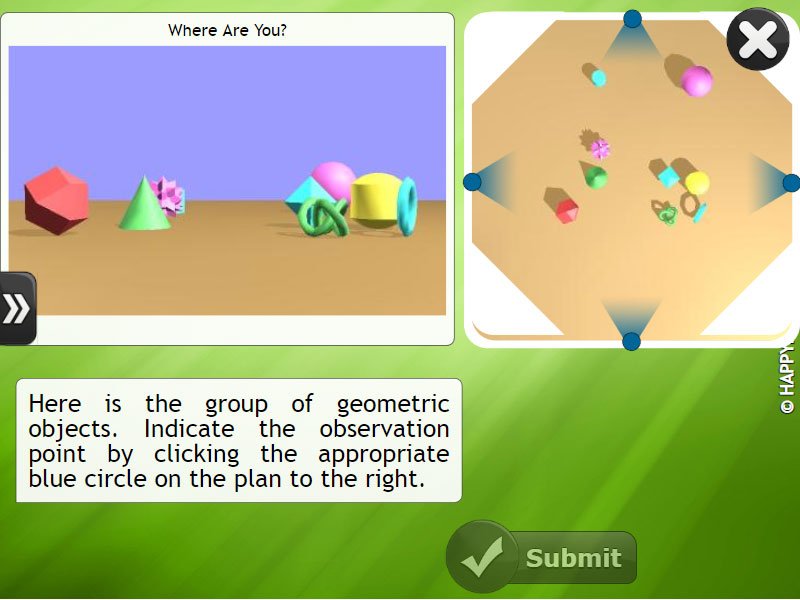
3) Points of View
While this exercise is used to remediate visual-spatial reasoning abilities, your client will be able to practice decision making by examining and comparing images of scenes in order to correctly place themself within a picture. With decisions, we often have to weigh and examine multiple forms of information. In this exercise, your client will have to use clues from different pictures, but you may find that they rely on one picture more than another. This is a good exercise to teach your client strategies to examine information at hand without bias and then to deduce based on the problem which information is most relevant to solving the problem.
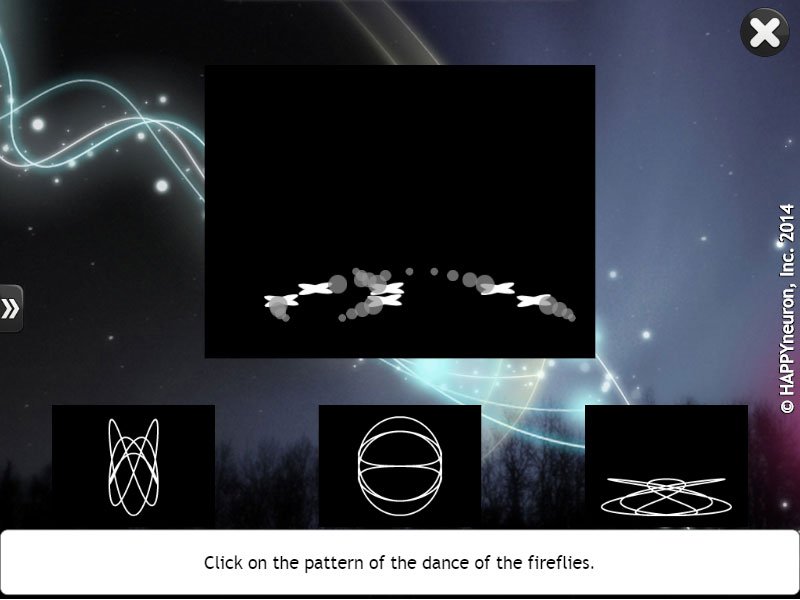
4 ) Dance with the Fireflies
This exercise demands attention to detail, as your client must recognize a dance pattern created by a number of fireflies dancing in front of them. Your client must analyze the pattern that the fireflies are making, and choose from a number of dances which one the fireflies are making. This exercise requires your client to visualize the dances, and make a decision based on the details of what they have observed. This exercise can be used to teach your client relevant strategies for anticipating events and how to decide action based on details, how to effectively examine a situation and analyze the information presented, and learn how to take a micro and macro approach to analysis that can inform choices later on.
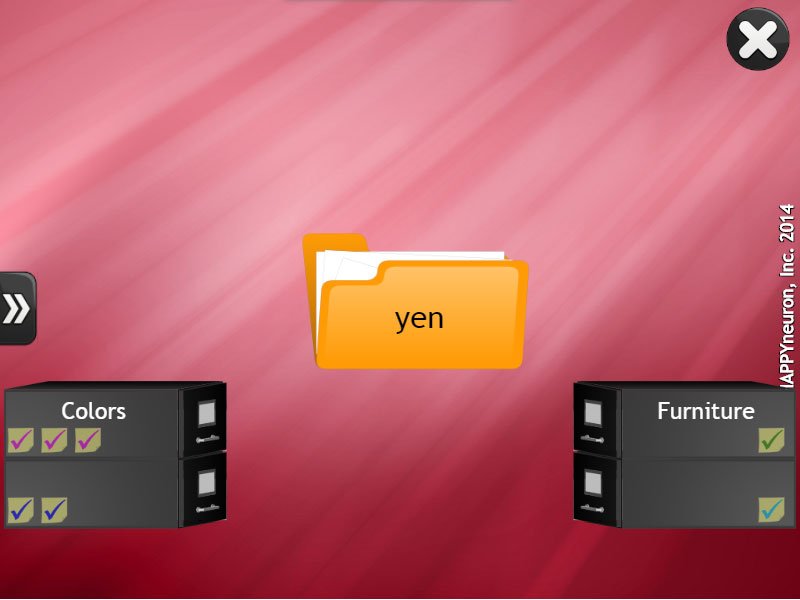
5) Secret Files
While the earlier levels of this exercise provide clues as to the categories of the files, the later levels do not. Your client must use a trial and error approach while remembering successful attempts from less fruitful ones. While this exercise targets processing speed and working memory, decision making can be practiced by encouraging your client to make choices when they do not know certain pieces of information and then using their learned experiences to make future choices that are successful. Discuss with your client times when they have had to do this, and how they may apply what they have learned from that experience to a similar situation they may encounter.
How Can I Use HappyNeuron Pro With Kids?
HappyNeuron Pro is meant to be used under the guidance of a therapist or teacher. A therapist or teacher would set up an account for each child that they work with and are able to assign them homework to do on their own or use the program during therapy sessions. For teachers, a teacher may conduct a class on cognitive skills by setting up an account for each student that they work with and assigning an exercise plan for a class period. When exercises are completed, results are automatically calculated and maintained within each child’s account. This means that there is no scoring needed to be done, just set up each child and help them have fun practicing cognitive skills!
Like our digital exercises? Try these worksheets that also tap on decision making skills
While there are many therapists and teachers who use our program with children, here are some of our users who help shape young minds everyday.














